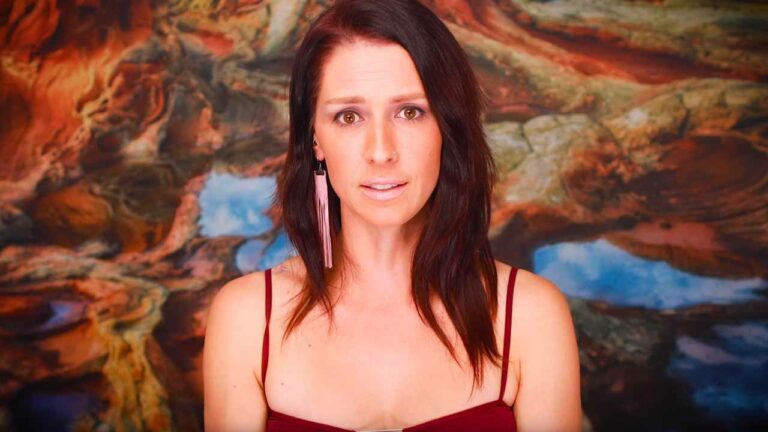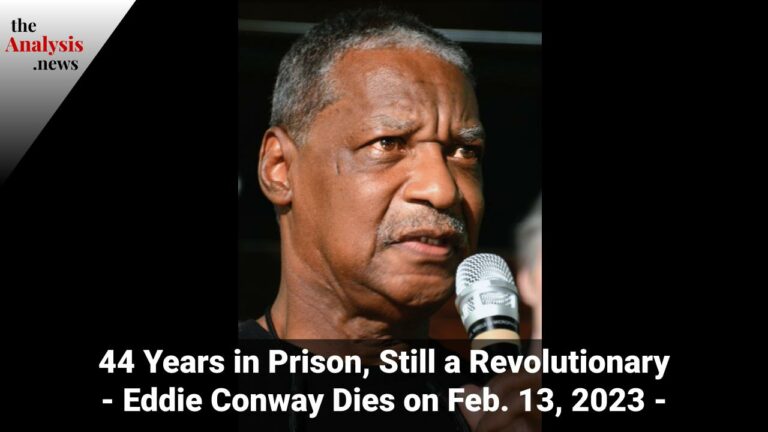By Jan 6th events, the majority of corporate America wanted Trump gone, but money continued to flow to GOP. Tom Ferguson joins Paul Jay on theAnalysis.news.
Link to the article – https://www.ineteconomics.org/research/research-papers/the-knife-edge-election-of-2020-american-politics-between-washington-kabul-and-weimar
TRANSCRIPT:
Paul Jay
Hi, I’m Paul Jay. Welcome to theAnalysis.news. Please don’t forget our year-end fundraising campaign, I guess. What does that campaign mean? Me asking you to donate money at the end of the year. As you look at your tax situations, we are a 501 C3 in the U.S., and if you’re not in the U.S., well, I guess just do it because you like what we do. Be back in a few seconds with Tom Ferguson. We’re going to talk further about the perfect storm gathering in the 2022 and 2024 elections.
So I’m continuing my discussion with Tom Ferguson about a study he’s done on the 2020 elections and what that tells us about 2022. Thanks for joining us again, Tom.
Thomas Ferguson
I’m glad to still be here, Paul.
Paul Jay
Just one more time, Tom is a Professor Emeritus at the University of Massachusetts, Boston, Director of Research at the Institute of New Economic Thinking, and a Senior Fellow at Better Markets.
The quote from your document, which I read, I thought it made a very important point, which is the elites, especially as you have done the analysis, the interests of fossil fuel, private equity on Wall Street, who were big supporters of [Donald] Trump, and of course, not only them, it was really amongst for the tax cuts and the deregulation, broad support for Trump. But, yeah, a lot or most of the elites bailed after he refused to have a peaceful transition of power. I’ve mentioned a few times on air how the National Association of Manufacturers, one hour after the doors of Capitol Hill were breached, have a press release calling on [Mike] Pence to invoke the 25th Amendment to remove Trump.
So the elites had already decided Trump had gone over the edge. They got what they wanted out of them, and now they wanted him gone. But they certainly didn’t bail on the Republican Party. And you’ve done a very important analysis about how much money affected the congressional election and how that might happen again.
Thomas Ferguson
Yeah, look, in our paper, towards the end, we asked the question: why were the results of the presidential race so different from the congressional races? Right up to the very moment of election day, I was reading paper after paper on how the Democrats were blowing away the Republicans in fundraising and that this was going to lead them with all kinds of triumphs in the election. Now, look, we’ve been here before. We have been here before, in particular, because my colleagues, [Paul] Jorgensen, [Jei] Chen, and I, we had just finished an analysis of 2016 where you could see, with three weeks to go, the chances of the Republicans holding on to the Senate were vanishingly small.
Actually, in October, you could buy a betting contract for about $7 that would get you $100. That’s how little people thought their chances were of doing that. And in the end, a flood of Republican money, as we documented, saved the control of the Senate for the Republicans. Now that linear model of spending, which we developed, is right. It just shows in election after election, and I thought at the time people were underestimating the amount of late money that was going to come in and that the thing would not look nearly as imbalanced as lots of people, I dare say, including some people you might even have interviewed, Paul, was telling you that business was abandoning Trump. This is before the election. After the election, it is as you said. And I didn’t believe it, but there’s not a whole lot you can do except wait and see what happens.
Well, we have since analyzed the money, and yeah, the standard formula proved out again, which was the Republicans actually spent heavily. Well, they raised roughly equal or more than the Democrats. They ended up holding onto their positions in Congress much better than people had thought. And start with political money, exactly as you suggested for why in Congress things didn’t work out the way they did in the presidency. There’s probably some more to say about policy there, too, but we’re still working on that.
It’s fundamentally; it’s just a straightforward prediction. If you had known the total amount of money, you could have predicted it. We didn’t at the time because there’s a rear-view mirror in the reporting requirements, and that’s no accident. Yeah, political money is still powerfully directed toward Republicans, and one may add corporate Democrats; a point we didn’t spend a lot of time on in that paper, but which you have to unless you’re a—
Paul Jay
Tom, break down what that money does. Why does money so affect it? Is it advertising, ground game, or all of the above?
Thomas Ferguson
Well, I don’t know. I’m sort of thinking on this one. Do you remember the old Hubert Humphrey apocryphal line? We don’t have to choose between jobs and pollution; we can have both. The ground game advertising, people on the ground are clearly, I think, pretty important. In another paper, Ben Page and I, and several other authors showed that the strong ground game or something, something in those States that had Senate elections in 2016, helped Trump in those final weeks when he was looking like a loser, too. There’s a kind of reverse coattails effect. It’s hard to partial out TV coverage and things like that, partly because the data on media markets is usually across political jurisdictions that you’d like to segment while people try all kinds of clever devices to get around them. They’re not, I think, particularly convincing. But can it be really that surprising in 2021 that a lot of money helps people in politics?
Paul Jay
But Tom did the Republicans outspend the Democrats in the congressional races?
Thomas Ferguson
As I recall, yes. It was certainly nothing like the lote grotesque imbalance. It was fairly close, but my memory on this is that they did. And so they ended up much stronger in the House, and they held the Senate until Trump proceeded to shoot himself in the foot by going down to Georgia and talking mostly about his stuff instead of the Republican things on it.
Paul Jay
If money is the determining factor, and the Democrats and Republicans spent more or less the same amount of money on the congressional races, why did the Republicans do as well, or even better than the Dems, given how much of a complete screw up the Trump presidency was, especially at least on COVID?
Thomas Ferguson
Okay, well, Paul, look, the basic story is really straightforward here, I think. It’s not that the Republicans did so wonderfully; it’s that they did far better than what people were expecting them to do, and that is a fairly straightforward story. The claim was all before the elections by any number of people who should have known better that the Democrats were going to vastly outspend the Republicans. When you actually sort that out, which Paul Jorgensen, Jei Chen, and I did, you find that the Democrats did indeed outspend the Republicans, but not by that much. By relatively small amounts in both the House and the Senate.
Now the difference this makes is, well, look what happened, which is that the Democrats won more seats in the Senate than they had. They won, something like three and more. In the House, they held onto their lead. They didn’t lose, but they didn’t do nearly as well as they expected. I mean, the short, simple answer is that, yeah, money really matters, and their money advantage was nothing like people were expecting. That is the whole story, in my opinion.
Paul Jay
And is it also partly that sections of the elites that pump tons of money in the elections— well, sections, not all by any means. As you point out, not fossil fuel, not agriculture, but certain sections didn’t really want Trump back, but they quite liked the idea of a [Joe] Biden presidency with a strong Republican presence in the House and the Senate.
Thomas Ferguson
I think that’s absolutely true. Look, my old neighbor in Princeton who was, I actually knew the Republican leader. I may have used this story before, but it can’t be repeated too often. I actually knew him a bit, and he was a top corporate official. And he used to refer to George Ball Democrats. George Ball was a very celebrated Democrat who actually performed quite creditably, especially in Vietnam and Lyndon Johnson’s administration, but he voted Republican in local elections. That kind of combination use is very, very common. That’s just an extreme version of what you’re talking about. Yes, indeed, that’s just the basics of the situation.
Paul Jay
So in terms of 2022, while it’s pretty clear the preponderance of the elites, not all, but a lot of them bailed on Trump, the individual. Though he still got a long list of billionaires that are showing up and paying homage and kissing his ring. Politicians are certainly kissing the ring, and billionaires still want to rub shoulders. But the preponderance of the financial sector and others certainly wanted him out after he lost the election. But what does that mean now, in terms of 2022? Is the preponderance of the elites going to be behind the Republican Party?
Thomas Ferguson
That’s hard to calculate until—my reading is that Trump is pretty much poisoned to large chunks of former supporters. They need Trump light, as it were, or Trump different. I think the fabled Virginia governor’s race that was just run shows you the wave of the future. The candidate there was a former Carlyle partner, [Glen] Youngkin, and he was running with a black Lieutenant Governor, though not formally on the candidate, though not formally on the same ticket because they’re separately elected there. And he was obviously— he was carrying on about critical race theory in the schools, which isn’t taught in Virginia schools.
On the other hand, there have been plenty of problems with schools, and here let me just sort of— this is worth a moment’s notice. Lots of things went wrong in American schools over the last year or two. In many cases, it’d be hard to apportion the blame, except at the top, for being so unresponsive. I hardly blame teachers who have been told to go online and teach online, where many of them have never even had that kind of equipment available, and students who had none.
I mean, I talked to a College President of the College Association who dealt with mostly historically Hispanic universities, and he just said many of our students, we gave them computers, and they didn’t have electric power. Pardon me. Sorry, not electric power. They didn’t have broadband that they could use in their houses and things like that. So I’m not suggesting at all that you start pinning the blame on teachers, but schools have had lots of trouble dealing with this. And now they’ve got some money, but they’re promised a new checklist I saw in the Biden thing. They need very specific guidance on ventilation, and they need a great deal more quick releases so they can spend the money on tests that matter and things like tests that can be useful and are cheap instead of their legacy providers. People are moving way too slowly on this.
Anyway, the bottom line on this, Paul, is that the critical race theory, I think, is the only discussion about school problems that’s out there. That people know there have been colossal failures in the schools, and they’re often at their wits’ end. Mothers, in particular, because they have most of the daycare responsibilities, are— even in affluent neighborhoods— complaining that, say the teachers call in sick and things like that.
Now, that’s not very surprising because nobody’s done very much to sort of protect teachers all that much from COVID problems. And now we’re out of the situation where your medical bills were being picked up by various government programs. Although, at least the cost of the test, I guess, Biden is now going to pick up. But anyway, this is just to say that you’re looking at the perfect storm, and it includes a mess in the schools that nobody is dealing with seriously or even trying to understand. You can see how what’s happening is a mass abandonment of schools.
There was a headline in the Boston Globe that the total number of people in the Boston schools have dropped below 50,000. They’re not going to be—what’s happening is that people with means are walking out on a colossal basis. People need to fix this quickly. Otherwise, you’re going to get into a downward spiral of fewer and fewer people in them, bigger and bigger problems that are not getting fixed. And we sort of have run this thing in the 1970s, and before, actually, but especially since the Supreme Court decision that basically insured you couldn’t use richer areas money for poorer urban schools. That Milliken decision, I think in ’74, cemented real inequality in an awful way in urban core areas. People got to deal with this, and the Democrats got to deal with it. I don’t see anything coming out of the Department of Education here that begins to deal with that. And they got to set standards as well as hand out cash, and they need to sort of break these lock jams of historical bureaucratic requirements, which block you from cheap, accessible tests. And they have to do it in a hurry. So this is a mess.
But now, coming back to your point, what is the Virginia race? Let me just walk you through this. This is very important, and it’s been almost, not completely misrepresented. I have to say, look, I don’t like the American media, but the Washington Post did a decent job on it in the end, over time. I think the New York Times has not, basically, not to mention other periodicals. The original claim was that critical race theory; our education was the dominant impact. It was the dominant influence in the Virginia election. When you look at the polls, it wasn’t. It is perfectly obvious when you actually asked voters, say about 25% said education was what determined their vote. The party spread on that was quite narrow. It was like six or seven points. In other words, there were almost as many people on the other side going there. Whereas the folks who said the economy was something like 35%, and if you throw in taxes on that, it’s another 12% or 13%. There are only just a couple of holes there. So 47% are basically just voting on straight economic issues. When you look at what— as a first choice, they could have other considerations, too.
When you look at what the governor candidate from the Republican Party is saying, he says the cost of living is his number one issue, and they pound away on that. Now Virginia has an old; it’s been an issue for years and years in Virginia. You have a tax on food, and populist Democrats used to recommend abolishing that. Well, suddenly, you get a former Carlyle partner pushing that in the Republican Party. Now that’s not race, and he’s running with a black woman Lieutenant Governor candidate. So, not surprisingly, both black and Hispanic votes moved a bit in the Republican direction. You can read critical race theory as a dog whistle, which is, I think, what it is since they’re not teaching it in Virginia. They better be—
Paul Jay
Never mind not teaching it; nobody knows what the hell it is.
Thomas Ferguson
Right, but if you take a different approach to it, Loudoun County definitely had real trouble in their school system that I think wasn’t about critical race theory but was about some very dumb policies occasionally. I’m not claiming to be an expert on that, but the bottom line here is the cost of living. I should add that of the people who mentioned the economy, something like a huge majority of them went Republican, and the turnout was a little different, too. It was slightly more white, slightly more evangelical, but not hugely.
My take is that inflation is a potential, really problematic issue for the Democrats in 2022. And I say that because when you actually parse it, it’s true. A number of folks, Claudia Sahm, and people like that have said very simply, look, people got a lot of money from Biden when he came in to tide them over. And that’s true. It absolutely is true. The big bang that Biden started out with was fantastic, and he was hugely popular, but COVID, inflation, and Kabul, the sort of used three code words, made him look terrible. And they’re almost comatose the way they’re not responding and messaging very much on this stuff. It’s like these people can’t seem to multitask much at all. They’re just responding.
Paul Jay
So we’re going to do another segment, and we’re going to dig into some of the other really important issues raised in your paper.
Thomas Ferguson
Well, thanks for having me.
Paul Jay
All right. Thanks again, Tom, and thank you for joining us on theAnalysis.news.









